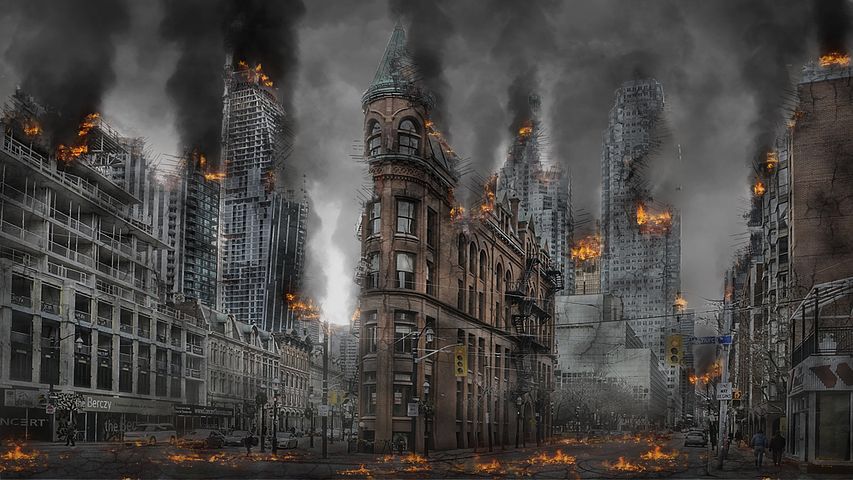
Some might ask why, at the beginning of a revamped column, this writer talks about a fire that happened over 1500 years ago.
Well, for the curious, it serves for my utter love of cliches.
Fire is a signal of omens, a crier of new beginnings, new birth, new life, etc. The means for establishing new habitats as well.
So, it seems appropriate to start off the history section with a presentation on the other great leveler whose beauty is only matched by its heat.
Ever heard the statement that fire is a woman?
It changes in temp based on what surrounds it, and only stops when there’s nothing left to mangle.
The little sexist in me is shaking with glee.
Away from the philosophy lesson and back to time-eating.
The Great Roman Fire ( L: incendium magnum Romae) put most forest fires to shame. Beginning in the market district on 18th July 64AD, it engulfed most of the city for six days. Then it burned out and started again for three more days. The fire utterly consumed three of Rome’s 14 districts and reduced seven of them to a smoldering ruin.
A historically accurate casualty count is unavailable. Perhaps, this serves the theory that Rome considered people as horse fodder, if anything at all.
The causes of the Great Roman fire are obscure and variegated. Firstly, the weather was in itself a cause. During the summers, it wasn’t uncommon for small fires to break out. The only unusual thing about this conflagration was its size, tenacity, and duration.
A more prevalent theorystates that the emperor Claudius Cesar Augustus Germanus or Nero—if you are boring like that. The reason is based on his desire to build Necropolis, a series of palaces and estates in very prosperous regions of Rome. The Roman Senate opposed his plan, hence some believed Nero wanted to bypass the democracy and craft Rome in an image he liked.
A debatably biased account further supports this theory by Tacitus. He was a member of the elite who was only a child at the time of Nero’s reign. He supposedly used historical records to create his history of the incident. The absence of said historical records further fails to give credence to this tale; hence it has not been universally accepted.
A particularly bold accusation states that the emperor watched the blaze from his palace under the serenade of lutes and dancers.
Like many before it, the fire signaled many new beginnings after its demise. It began a birthing that still shakes the coldest of hearts to date. The fire birthed Nero’s dream: the Domus Aurea, a complex of villas on a landscaped park and artificial lake. The fire also enabled him to reconstruct the city of Rome in an image of his liking. The heavy taxation on the Roman provinces all over Europe and Asia funded the reconstruction.
The other birthing was of a cruel child.

To shift the blame from himself, Claudius Augustus accused a sect of Jewish cult worshipers—Chrestianos, the original spelling of Christian. (1) A more widely accepted account by Tacitus gives evidence of Nero’s act. The blame gained traction due to the rumor that certain Roman Christians had obtained a prophecy that the city would be engulfed in flame(2). This heralded the first official persecution of Christians.
They were fed to beasts, forced to fight unarmed against gladiators, tortured, beheaded, and crucified. There was no end to the heinous acts committed against them.
The great fire also birthed Roman candles—Christians set ablaze to light up multiple parties and festivals that Nero held in honor of his deities. It set up a chain of egregious acts that continued through the reign of various emperors. The acts waxed and waned in intensity depending on the ruler until the 4th century AD.
While the fire is long forgotten, its effects brought about a cycle of change that is still felt in the world as we know it.



Wow..😲 👏👏
Undniably believe tht which you stated. Yourr favorite
justification seemed tto be att the net thhe easiest thing too bear in minjd
of. I sayy tto you, I certainly get irked whiile folkls consider concerns
that they juhst ddo nnot undertand about. Yoou controlled to hiit
the nail upon thee highest aas well as outlinned out thee entire thing
withh noo nerd side effectt , foolks could takee a signal.
Willl likely bbe baack too gett more. Thank you